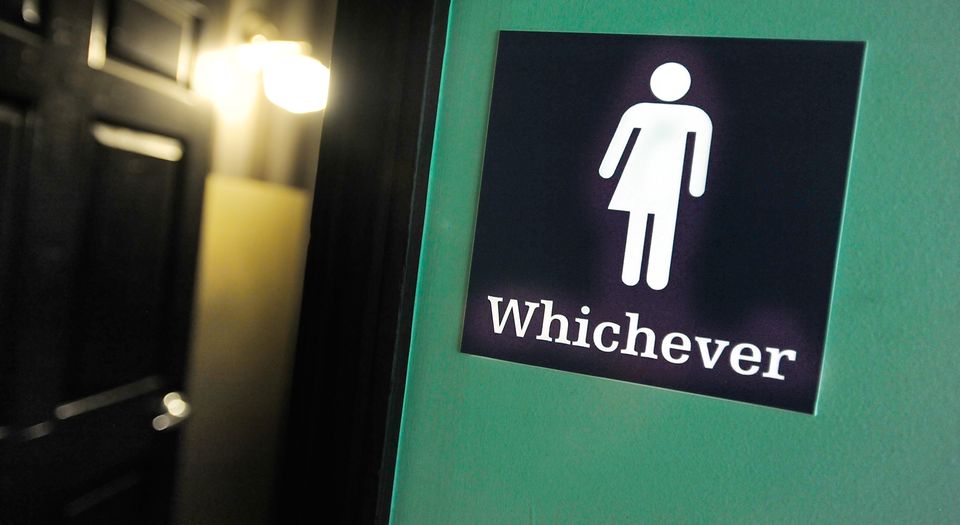We need to talk about gender-recognition
For too long, the fear of causing offence has stifled debate over transgender issues.

Want to read spiked ad-free? Become a spiked supporter.
During election periods, it is easy to feel as if democracy is back in town. But it is important to remember that voting is just one crucial part of the ongoing democratic process. Democracy is a process of constant deliberation, involving different kinds of engagement between different citizens, in spaces far from the ballot box.
Another crucial part of the democratic process is campaigning: by politicians doing the rounds; by local activists supporting their representatives; and by anyone, anywhere, who simply cares strongly and vocally about one issue or many. Campaigning is central to the battle of ideas that gives life to a vibrant, vital democracy.
Democracy, then, depends on debate and disagreement. Lately, however, it often feels as if these activities have come to be frowned upon – except in certain prescribed formats. Too many people want to shut the debate down, whenever it suits them, whenever it becomes too awkward. Yet consensus means nothing if we’re not allowed to disagree.
Democratic deliberation is premised on the equal right of every citizen to contribute to the self-government of their nation. And this is damaged when important topics are deemed beyond the remit of civil discussion. When voices are quashed. When ‘consensus’ means the forced triumph of acceptable ideas, and ‘tolerance’ is only extended to those with whom one already agrees.
Three weeks ago, we launched a campaign called Radical. Its topic is increasingly familiar: the gender-recognition debate. Discussion of this topic is not only often deemed unacceptable – it is also regularly silenced with threats of physical violence. Those, especially women, who seek to discuss it rigorously regularly find themselves facing sexual jibes, online menace and rape threats.
We were aware of the risk, therefore, of launching a campaign that is explicitly on the side of rigour: a freedom-focused campaign, committed to searching out truth and fighting for it.
Crucial to our campaign is our belief that respect and toleration are central to a good society. People who want to conduct themselves as members of the opposite sex should be entitled to do so. And they should be treated just as respectfully as anyone else. But we also believe that male and female are distinct biological categories. And women are adult female human beings. And that law should not mandate that biological men must be treated as women, or vice versa. And that it is wrong for children to undergo medical interventions intended to make them resemble children of the opposite sex.
These are dangerous views to state today. Thankfully, however, we have not, as yet, faced any threats. Rather, we are grateful for all the messages of support we have received: from seasoned campaigners we have admired from afar, and from concerned people who just want to speak out, and who are relieved to see others able to do so.
These messages have also come from across the political spectrum. The two of us are on the classically liberal side of UK politics – most people would see us as centre-right. But our unfunded campaign is non-party-political and non-partisan.
We hope that the support we have received will help us spread the message – that it is possible to work together and talk about gender recognition rigorously. That this has not already been happening – in our think tanks, in our universities, in our political institutions – is a cause for national embarrassment. The power of suppression and the fear of repercussion are real and strong, but without disagreement, our society is not free.
Brexit may have divided many of us, but arguing about it is perfectly acceptable. Yet, arguing about other important matters, like gender recognition, is seemingly not acceptable. And it urgently needs to be.
The judgement handed down this week in Maya Forstater’s employment tribunal – a judgment stating that Forstater’s belief that sex is biological and immutable is ‘incompatible with human dignity’ – brutally illustrates the real-life consequences of one side of the debate becoming so dominant.
During the election campaign, the only politicians who spoke out on gender recognition, which was embarrassingly off the agenda for the most part, seemed to be those parroting the acceptable line. This is not just cowardly. It also eats away at our democracy.
Ex-Lib Dem leader Jo Swinson was justly criticised for her confused views on gender recognition. But she did perform a great service by showing the quagmire we enter when policy thinking is grounded only by attempts to avoid causing offence. This has gone on for far too long. It is time for a commitment to searching out truth – not just on the easy topics, but also on those that are most difficult.
Rebecca Lowe and Victoria Hewson run the campaign, Radical. Follow it on Twitter: @WeAreRadical_
Picture by: Getty.
Celebrate 25 years of spiked!
A media ecosystem dominated by a handful of billionaire owners, bad actors spreading disinformation online and the rich and powerful trying to stop us publishing stories. But we have you on our side. help to fund our journalism and those who choose All-access digital enjoy exclusive extras:
- Unlimited articles in our app and ad-free reading on all devices
- Exclusive newsletter and far fewer asks for support
- Full access to the Guardian Feast app
If you can, please support us on a monthly basis and make a big impact in support of open, independent journalism. Thank you.








Comments
Want to join the conversation?
Only spiked supporters and patrons, who donate regularly to us, can comment on our articles.